Archive Materials
The area of the collection designated “Archive Materials” covers a variety of different types of archived materials, including printed matter, deeds and files, flyers, postcards, maps, stickers and philatelic documents. Firstly, they convey information of relevance to the history of Germany since 1945 worthy of being housed in a museum. Secondly, they are not the subject of collecting activities by state archives. And thirdly, the archived materials collected are primarily paper-based, although increasingly they are archived in digital form, too.
Printed Matter
Brochures, Invitations, Prospectuses and Programmes
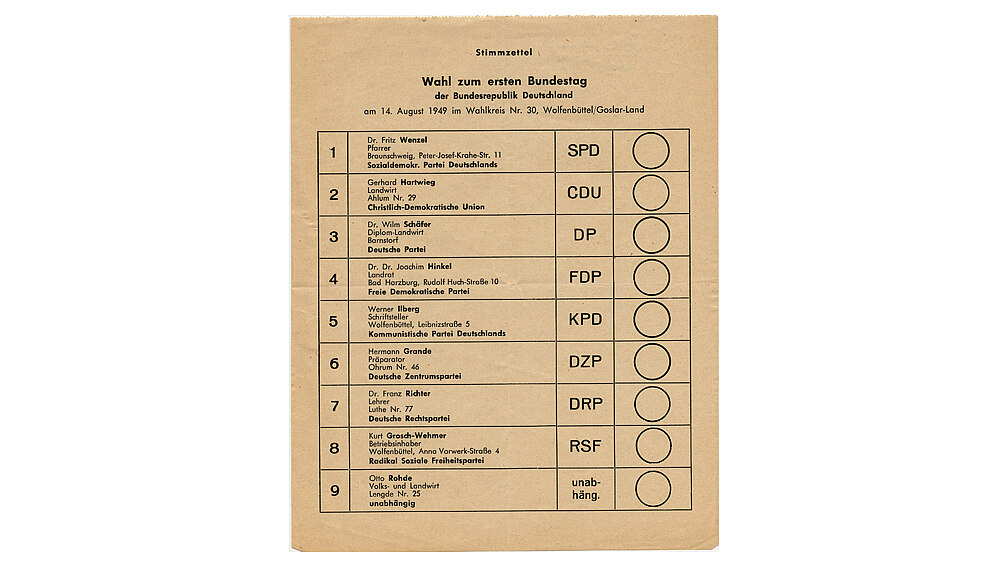
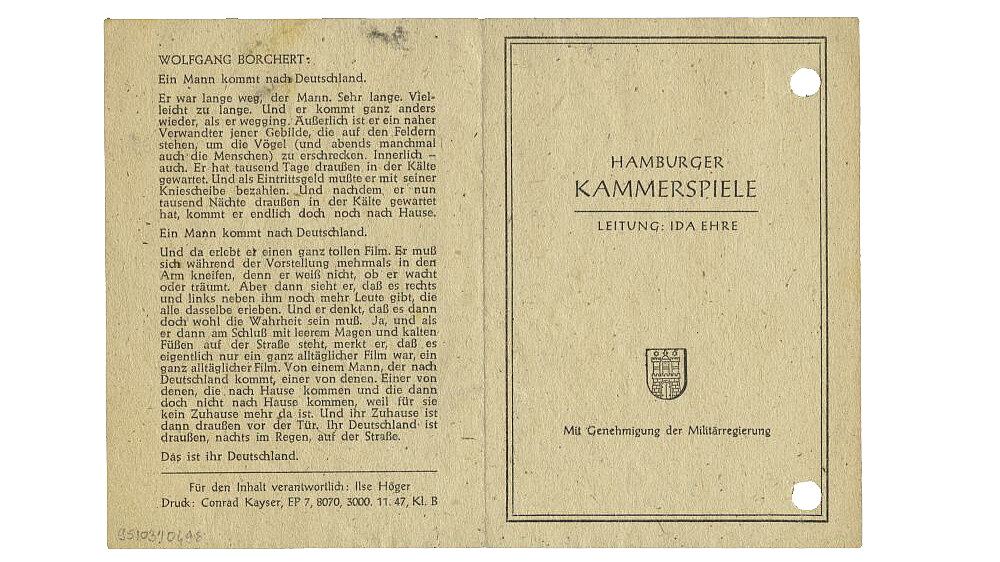
Printed Matter
Brochures, Invitations, Prospectuses and Programmes
Printed matter consists of serially produced printed documents that cannot be attributed to a specific person and therefore are not classified as “Deeds and Files”. Printed matter includes above all brochures, prospectuses, programmes, invitations, blank ID cards, and blank forms that document political, economic, cultural and social trends in Germany since 1945.
Contact
Leipzig
Deeds and Files
Individual Written Documents
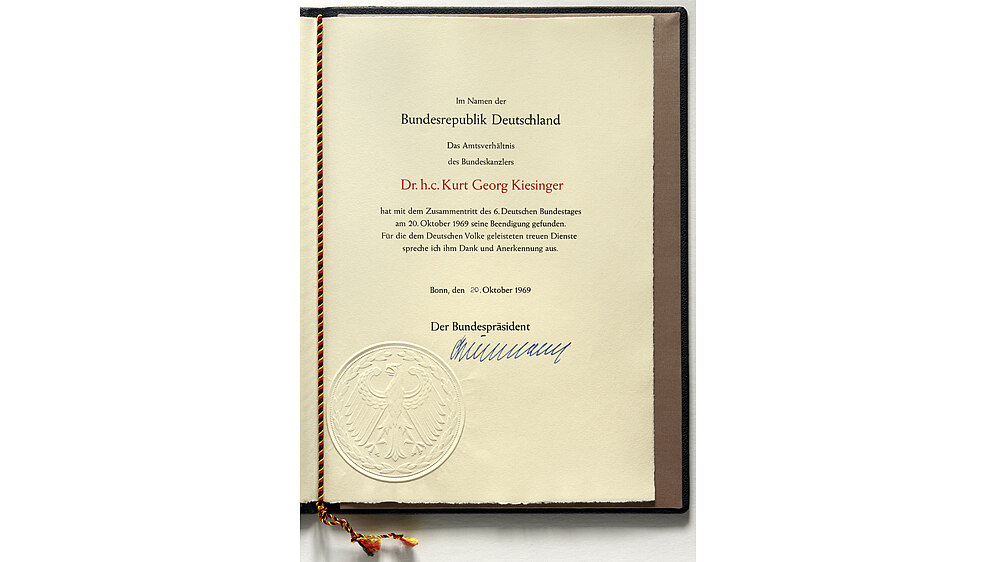
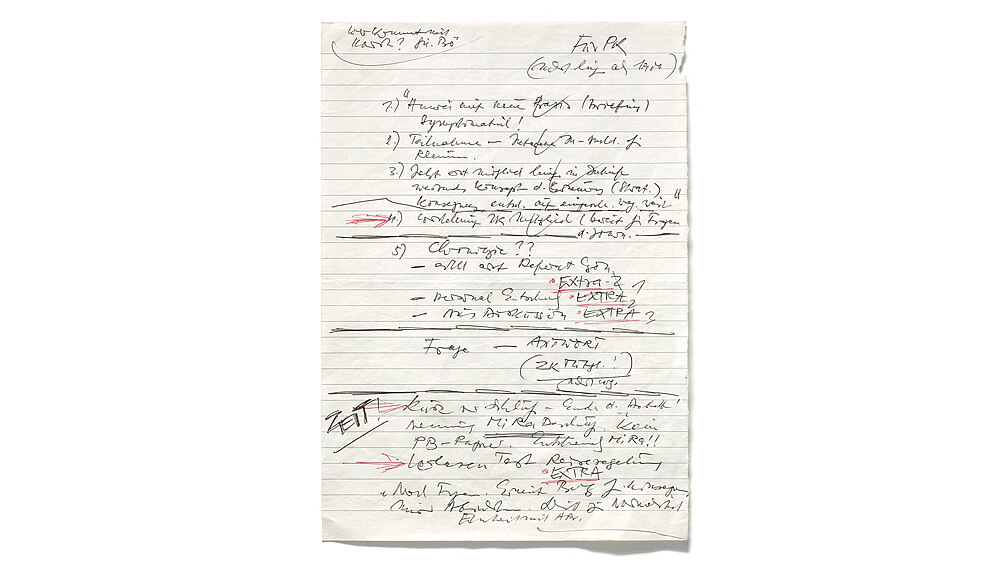
Deeds and Files
Individual Written Documents
The collection embraces hand-written or machine-made written documents of an individual nature that, unlike those classified as “Printed Matter”, can clearly be assigned to the personal historical context. They include, for example, official documents, private letters, personal ID cards, diaries and visitors’ books, and originals of contracts that document political, economic, cultural and social trends in Germany since 1945.
Postcards
Postcards as a Reflection of Developments in Contemporary History
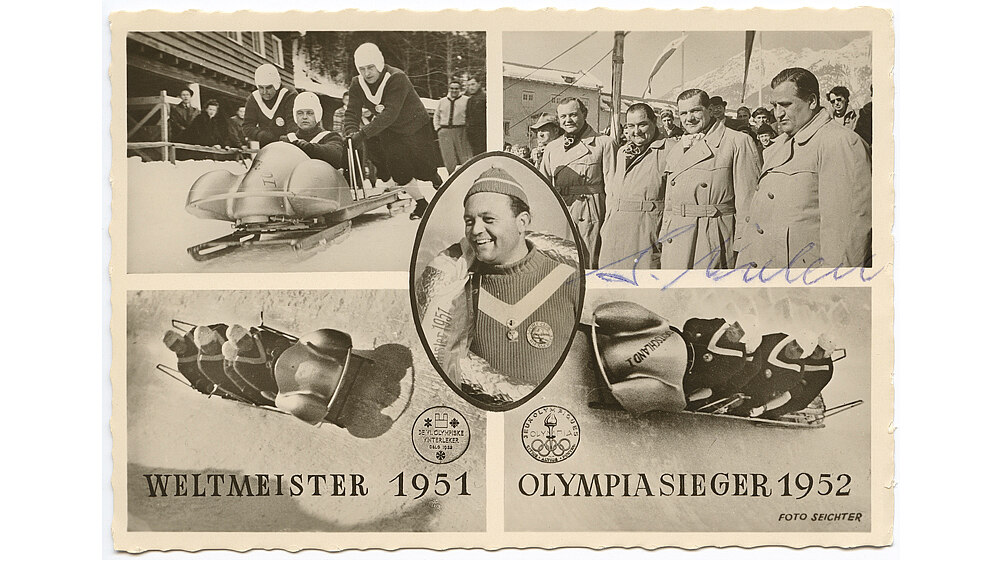
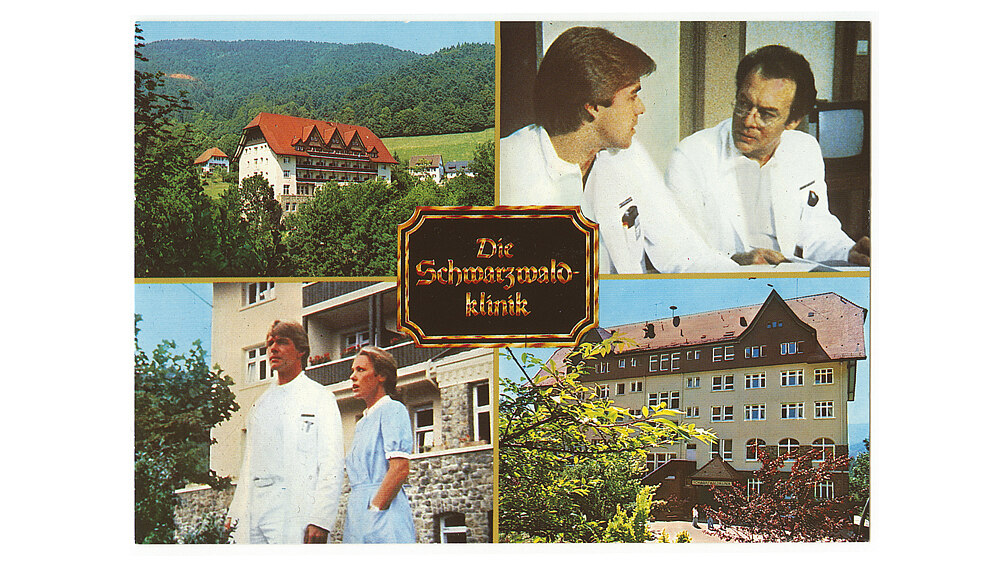
Postcards
Postcards as a Reflection of Developments in Contemporary History
The postcards collected have an image on one side and an address and communications section on the other. This area of the collection includes countless holiday postcards from almost all the countries in Europe and beyond – featuring tourist highlights and views of cities or the countryside. Alongside these historical image documents, we also collect art postcards and advertising postcards. Likewise of interest are postcards covering special events such as sports or church festivals, trade fairs, and postcards or postcard series with political slogans or appeals. Postcards reflect developments in contemporary history, such as the emergence of mass tourism in the 1950s and 1960s.
Contact
Flyers
Paper Leaflets Marking Special Occasions
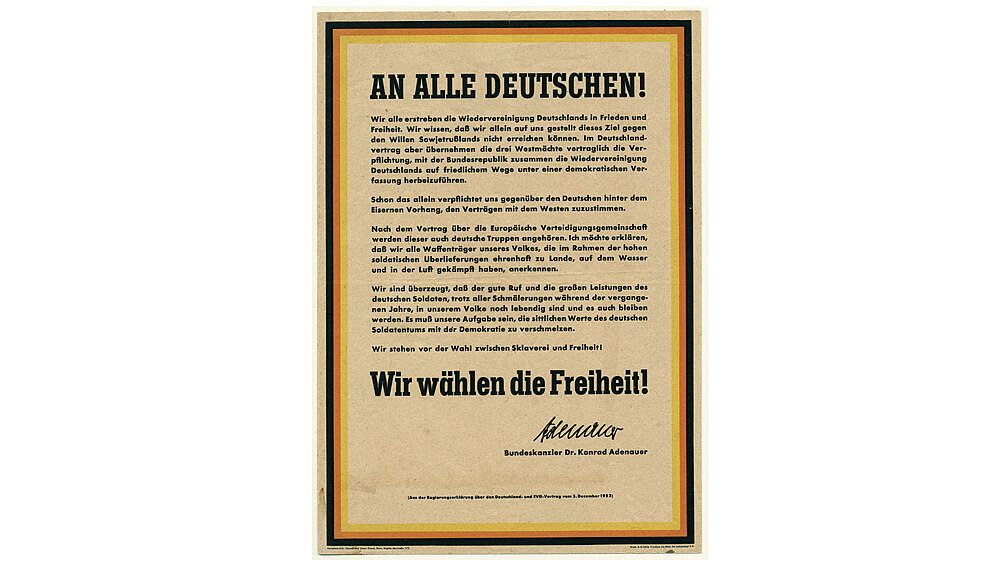
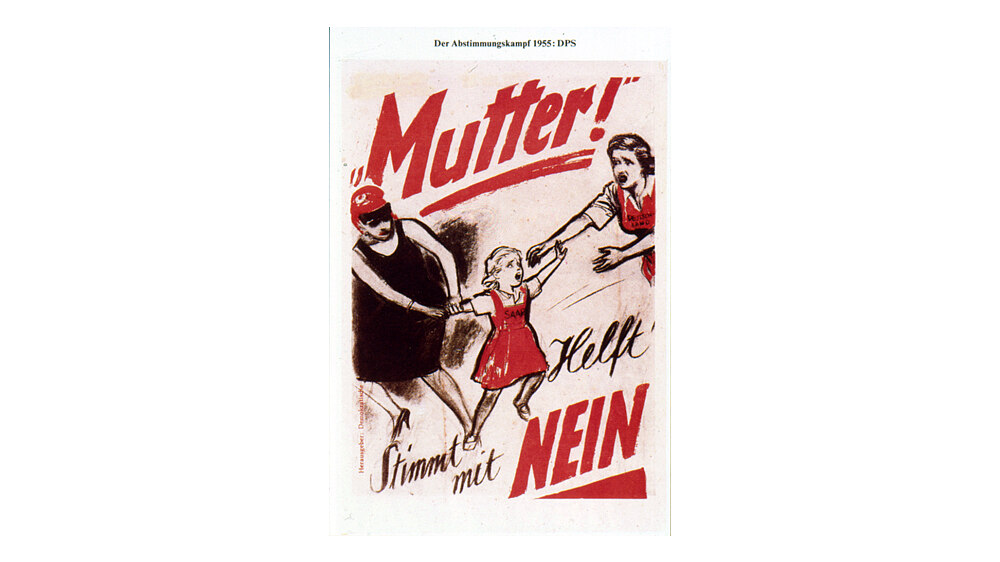
Flyers
Paper Leaflets Marking Special Occasions
The collection includes paper products mainly in smaller formats, either a single sheet printed with text and/or images, or two pages. They were made for a specific occasion and contain brief information and commentary on the same, often in order to mobilize the reader. The content tends to be political, but can also be commercial (advertising). Flyers are distributed free of charge, often by hand, or as mail drops or are even dropped from the air (from aircraft or air balloons or by cannon). Flyers reflecting different West German protest movements or resistance to the regime in Communist East Germany or the Peaceful Revolution there are of especial significance for contemporary history.
Contact
Leipzig
Maps
Country Maps, City Maps and Thematic Maps
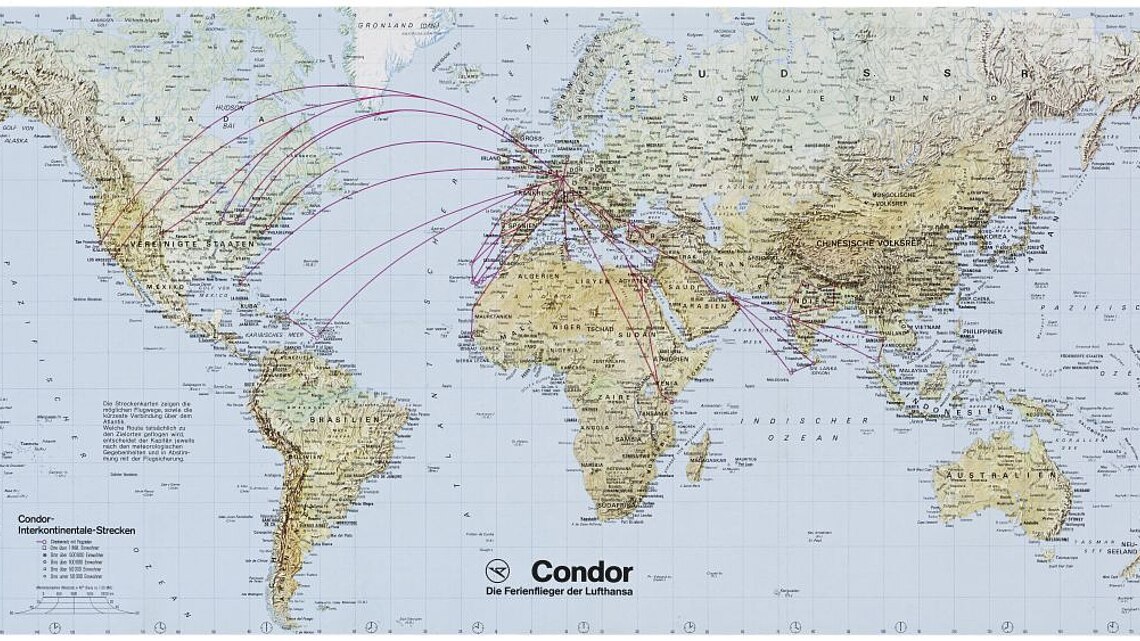
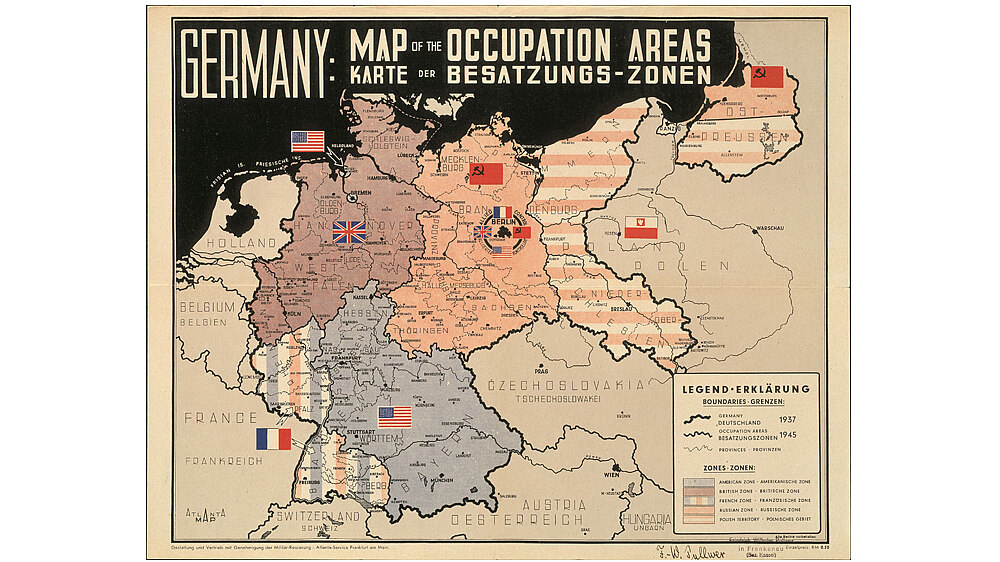
Maps
Country Maps, City Maps and Thematic Maps
This area of the collection includes miniature or model-like reproductions of geospatial facts in a graphical or photographical, 2D or 3D form (country/city maps, relief maps) as well as illustrated charts with schematic representations (school maps). Topographical maps on various scales show specific sections of complex images of the Earth’s surface, often supplemented by state or regional borders. Thematic maps focus on a specific geological, political, historical, economic or social aspect of the location depicted. Historical maps outline the spatial status or notions in contemporary German history from the Second World War to the division of Germany to Reunification.
Contact
Leipzig
Philatelic Documents
Stamps and Letters
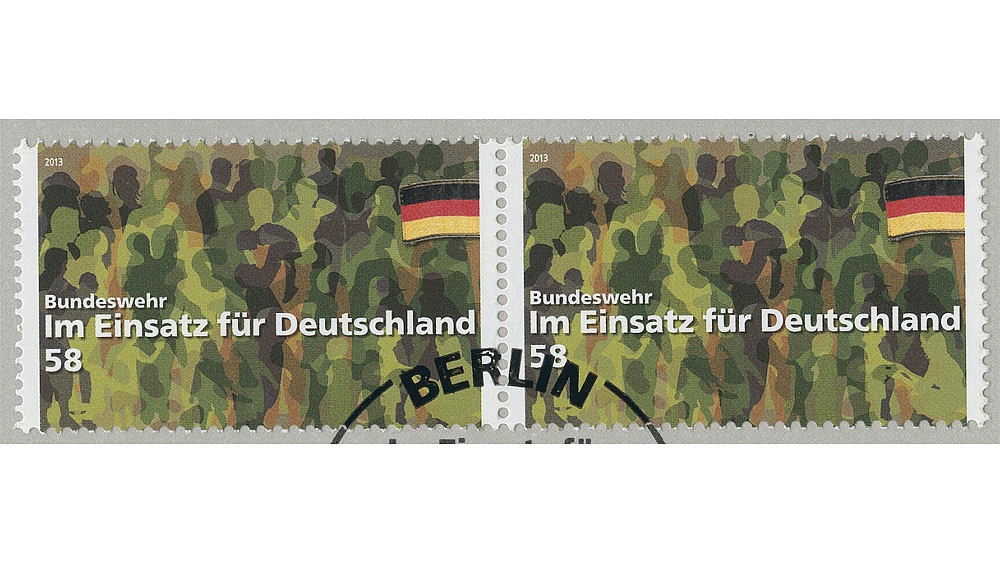
Philatelic Documents
Stamps and Letters
The “Philatelic Documents” section includes stamps, rubber-stamped overprints, franked and/or overprinted letters and postcards, first-day covers, first-flight covers, postal stationery, postmarks, parcel stamps and sheets of stamps. The focus is on commemorative stamps that attest to key moments or people in history as well as postmarks with a political message or slogan. Many philatelic documents are testimony to the German-German “Postal War”, where undesirable stamps or postmarks were blacked-out or printed over.
Contact
Stickers
Opinions, Advertising, Information
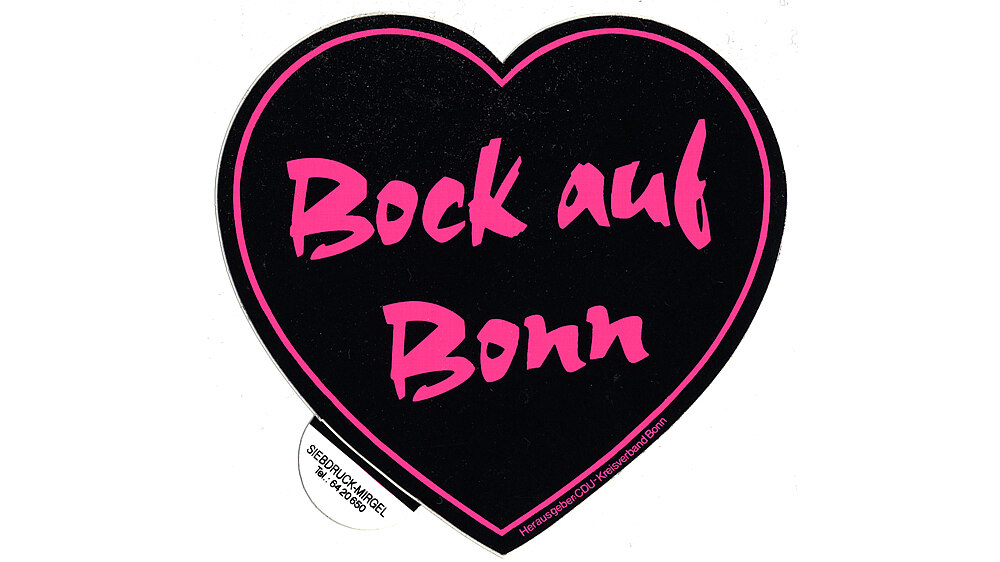
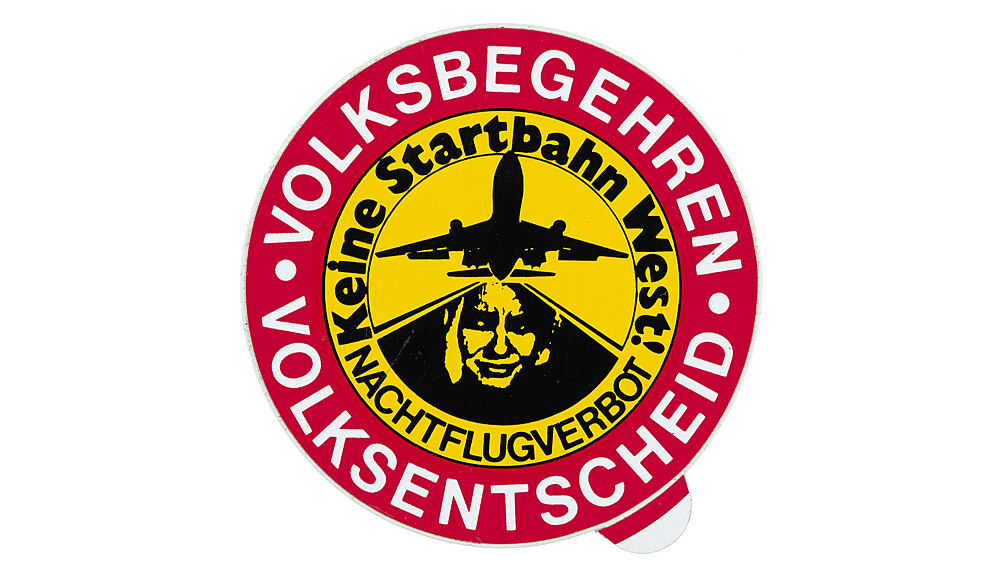
Stickers
Opinions, Advertising, Information
Our collection encompasses informative, mobilizing and advertising stickers from political parties and associations, civic initiatives, trade unions, clubs and associations, government institutions such as the German Armed Forces, as well as companies and businesses. The lion’s share of the collection stems from West Germany between 1960 and the late 1980s. The items from Communist East Germany consist of stickers produced by government mandate and illegal stickers by the opposition – mainly from the 1980s. Stickers of very different types and thrust reflect the political and social changes from 1990 onwards.